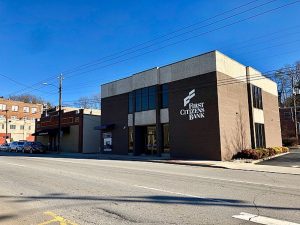North Carolina-based First Citizens BancShares has announced it would acquire Silicon Valley Bank (SVB), the California lender that collapsed in early March in the country’s largest bank failure since the 2008 financial crisis.
The Federal Deposit Insurance Corporation took control of the bank on March 10 after depositors made a run on it in a crisis of confidence. To protect depositors, the FDIC transferred all SVB deposits into a new entity, Silicon Valley Bridge Bank (SVBB). Depositors gained access to their funds in mid-March.
First Citizens will purchase $72 billion in deposits and loans of SVBB, at a discount of $16.5 billion. The deal includes the transfer of SVB’s $56 billion in deposits.
The bank’s collapse will cost the Deposit Insurance Fund about $20 billion, according to an FDIC statement. It had run two unsuccessful auctions for SVBB before First Citizens stepped in.
SVBB “had approximately $167 billion in total assets and about $119 billion in total deposits,” according to the FDIC statement. About $90 billion in securities and other assets will remain in the receivership for disposition by the FDIC, and the FDIC has “equity appreciation rights” in First Citizens BancShares, Inc. The $90 billion does not include the assets of parent/holding company Silicon Valley Bank Financial, which is engaged in a separate bankruptcy sales process.
“This is a very positive outcome for SVBB. It keeps the bank together in a way that provides the most value for our customers,” SVBB Chief Executive Officer Tim Mayopoulas said in a memo to staff. He will be replaced by First Citizens Chairman and CEO Frank B. Holding, Jr.
SVB, the 16th-largest US bank, focused on lending to thousands of tech startups. First Citizens’ challenge is to retain relationships with SVB’s client base.
“Perhaps the Silicon Valley V.C. dudes feel they’re too cool for a North Carolina bank,” wrote analysts at Autonomous Research, who told The New York Times they had been fielding questions from investors about the logic of the deal.






















